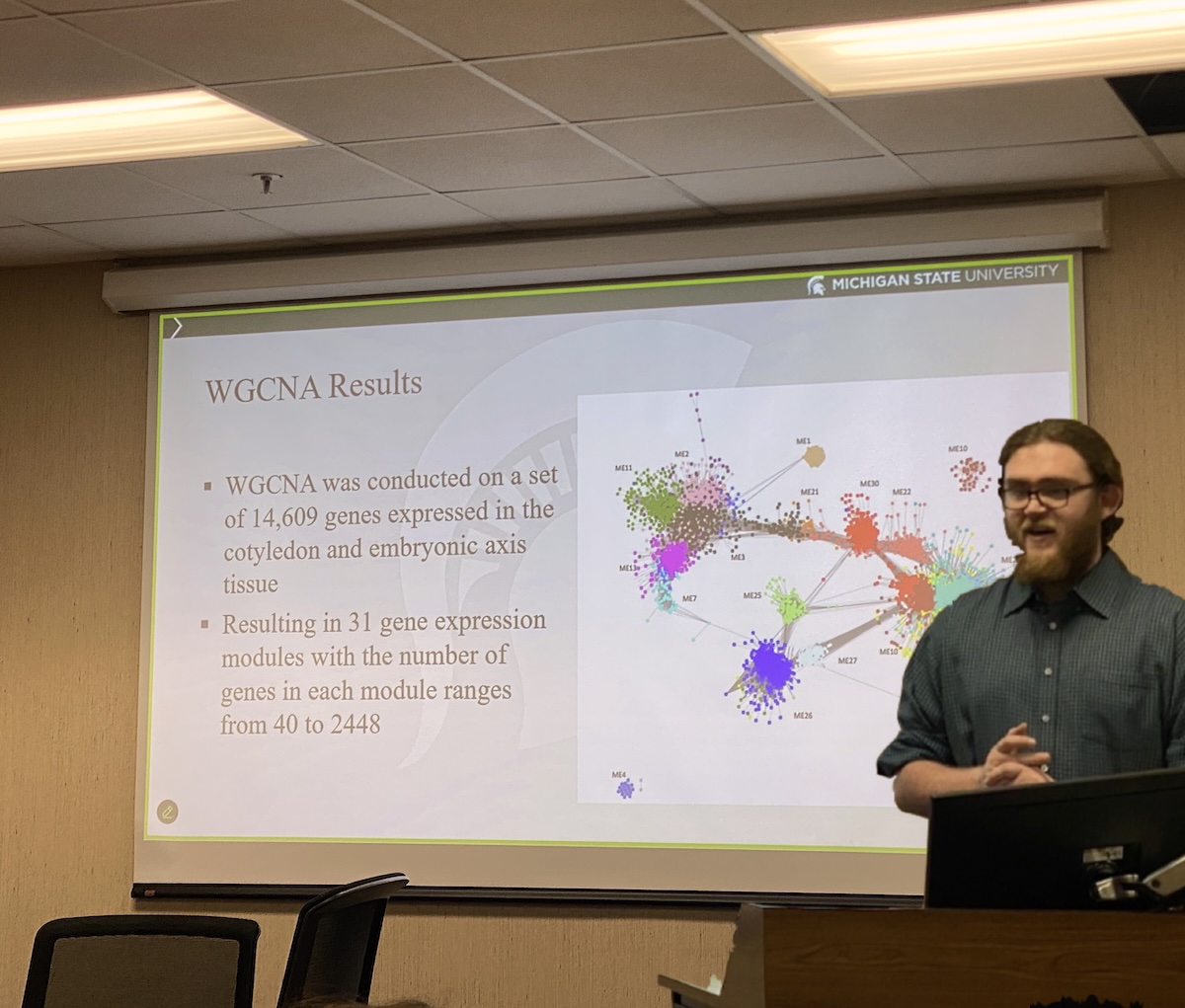Graduate spotlight on Michael Ozolins
Completed his MS and aiming for a PhD!

A few years ago, Michael Ozolins was a horticulture undergrad obsessed with succulents and plant physiology. Today, he’s wrapping up his MS in Crop and Soil Sciences and hurling himself headlong into a PhD project that has the potential to change how we fight herbicide-resistant weeds in agriculture.
What got him to this point? Curiosity of course—and a course in curiosity.
As a junior (and the 2021 recipient of the nationally competitive Edward Tuinier Memorial Scholarship), Michael took a graduate-level class with Dr. Eric Patterson on herbicide mode of action and environmental plant physiology. That one course opened his eyes to the deep science behind how plants interact with chemicals, and he joined the Patterson Lab soon after.

For his MS in the Patterson lab with support from the Michigan Soybean Commission, Michael studied how genetic mutations in plants can influence whether herbicides succeed or fail. Now, with help from a 2025 Project GREEEN award, he’s staying with the Patterson lab for his PhD together with the Weed Team and Plant & Pest Diagnostics will bring an advanced genetic mutation detection tool to Michigan producers so they can finely tune their herbicide applications.
“Instead of sequencing one gene at a time,” Patterson says, “We can now target genes in many different weed species at once and so we are in a good place to take the next step—we are pulling out all the genes that we think are resistant and testing with different combinations of weeds and herbicides. Now we will develop the CATS tool to bring this information to farmers directly. It’s smart science, and it means Michigan farmers can make better decisions, faster.”
“This next chapter is exciting,” Michael says. “It’s technical. It’s collaborative. And it’s meaningful—because we have the potential to make the growers’ work, and the world, just a little better.”



 Print
Print Email
Email




